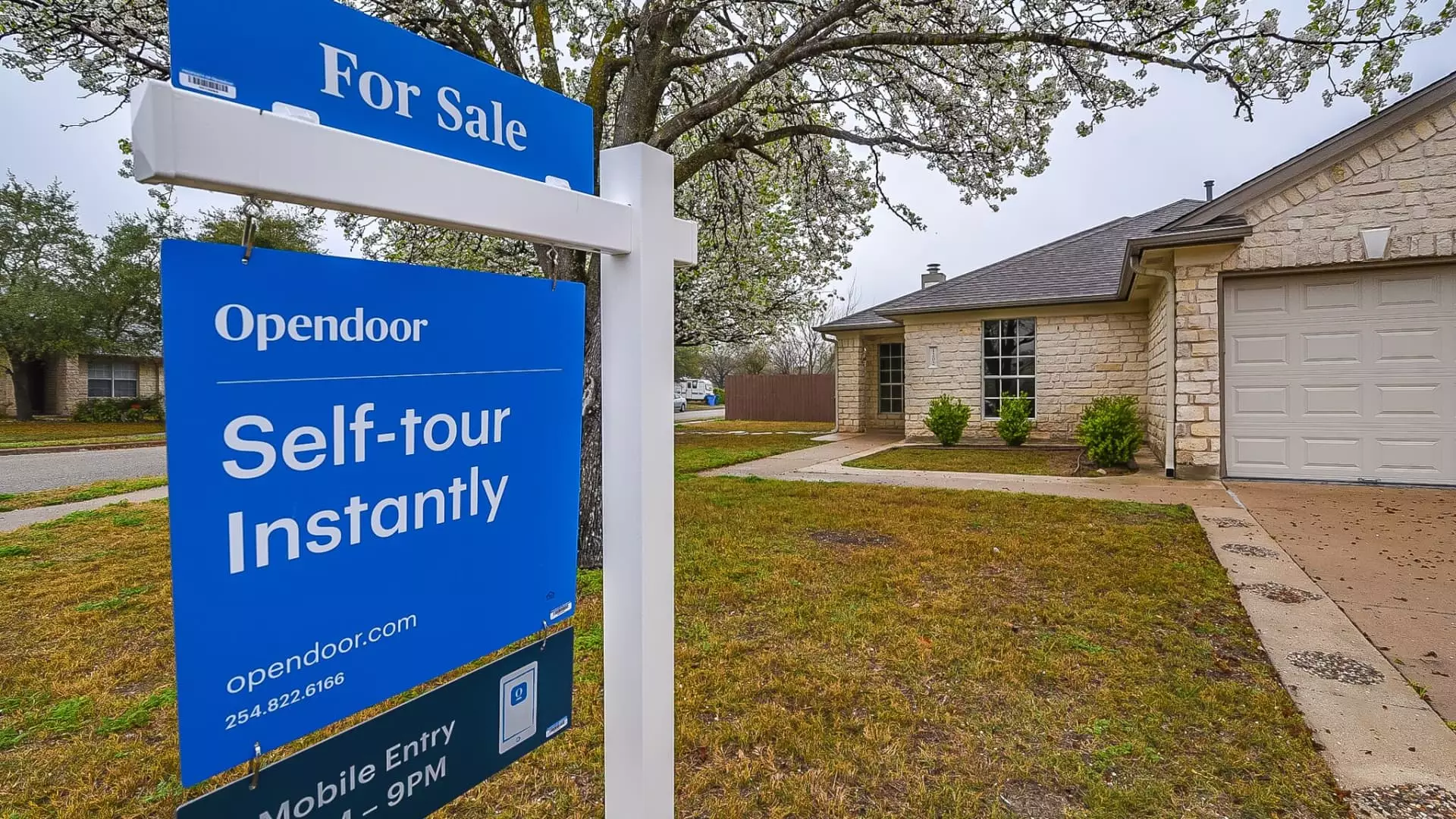Opendoor’s recent stock surge appears, at first glance, to be a sign of renewed investor faith in the company’s potential. Riding an almost fivefold increase since July, the company’s shares have demonstrated an unexpected resilience—yet beneath this seemingly bullish surface lies a shaky foundation. The surge was driven less by solid fundamentals and more by speculative frenzy, with heightened trading volumes capturing fleeting enthusiasm rather than genuine business strength. The fact that hedge fund manager Eric Jackson has publicly declared a bullish outlook suggests investment halos are being painted more by hope than by reality. Such hype risks creating a misleading narrative: that Opendoor has turned a corner, when in fact, the company’s core challenges remain unresolved.
False Signs of Turnaround
Despite the dramatic share price swings, Opendoor’s financial health remains precarious. After a disastrous revenue contraction from $15.6 billion in 2022 to just over $5 billion last year, recent reports depict a business far from stabilizing. While a narrow net loss reduction is encouraging, the company’s projections for the upcoming quarter suggest another significant revenue plunge—down at least 36% year-over-year. This points to a persistent decline in home acquisitions and sales, exacerbated by rising mortgage rates and a sluggish housing market. Rather than a sign of robust recovery, such data signals a deeply challenged business environment that the company struggles to navigate.
Market Sentiments and the Power of Narrative
Carrie Wheeler’s public acknowledgment of investor enthusiasm and her focus on strategic shifts reflect a company defensive against mounting pressures. Her emphasis on transforming Opendoor’s business model into a less capital-intensive referral platform hints at a strategic retreat from the original iBuying model—an acknowledgment of its fragility in a rising rate landscape. Still, this pivot lacks immediate revenue impact, and confidence in her vision is wavering among investors. The recent rally among retail and hedge fund investors may generate temporary optimism, but it seems disconnected from the reality of the company’s declining market share and shrinking profit margins. It is a classic case of a management team attempting to stem losses through tactical adjustments while hoping for a market rebound that may not materialize anytime soon.
Misplaced Optimism and the Risks Ahead
The narrative spun by Jackson and others betting on Opendoor’s revival risks inflating expectations to dangerous levels. His projection of a stock soaring to $82 appears wildly optimistic in light of the current cash flow realities and stagnant revenue streams. Market data show that, in the near term, Opendoor is likely to face further losses, operational cutbacks, and dwindling home acquisitions. The company’s attempt to reduce marketing expenses and shift focus away from its core business is prudent but not enough to mask the underlying weakness. Investors who buy into this speculative wave risk securing losses if the broader housing market remains choked by high mortgage rates and economic uncertainty.
The Illusion of a Lasting Resurgence
Ultimately, Opendoor’s recent rebound looks less like a genuine turnaround and more like a short-term speculative rally fueled by misaligned optimism. With the housing market still vulnerable, and serious questions about profitability and sustainable growth unresolved, the current enthusiasm seems premature. Any substantial recovery will require more than strategic tweaks; it demands fundamental market improvements and operational discipline—elements in conspicuous short supply. Until then, the risk remains that this rally is merely a mirage—an illusion of revival masking a deeper structural weakness that could resurface at any moment. Investors and observers should remain skeptical, for in the world of real estate technology, fleeting hopes seldom translate into lasting success.

